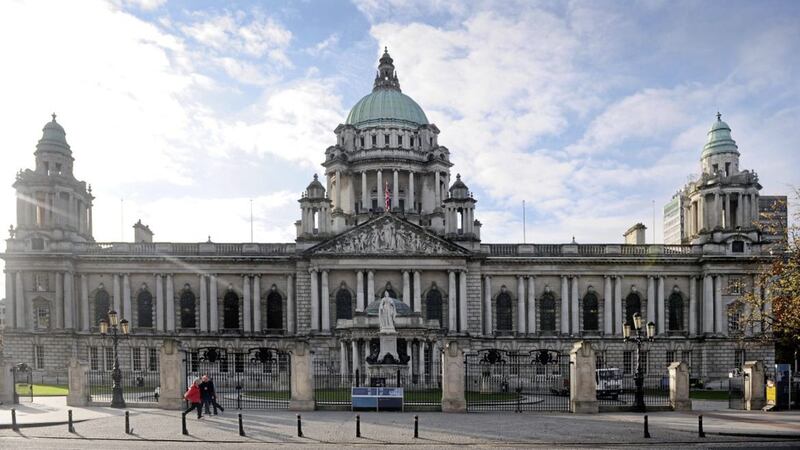THE ACADEMIC Arthur Aughey summed that Northern Ireland was a desert island on which republicans stared into the distance awaiting SS United Ireland, the ship of liberation, while unionists glowered hoping the ship would never dock. Neither thought to build a society.
Today's Institute of Irish Studies-University of Liverpool/The Irish News poll shows an electorate seeking progress, a lack of faith in present political leadership and three-quarters wanting ‘the next executive (to) prioritise jobs, health and welfare over constitutional issues’. They want an executive that comes together to seek mitigations from the EU. Voters want rid of the binary nonsense of MLA designation and support legislation being passed by 60 per cent of MLAs instead of the tomfoolery of petitions of concern. Altogether a much more consensual society than election results and commentary permit us to know.
Irrespective of what you imagine the future to be, we are now embedded in stages of change. Violence and sectarian crime are significantly down - the latter by 65 per cent since 2005. The first assembly led by Trimble and Mallon endured over 100 conflict-related deaths, contentious parades, and decommissioning issues. The economy was flat, emerging from decades of violence. A quarter of Belfast’s retail space had been destroyed. Today, Northern Ireland is a world leader in combatting cybercrime, fintech, cultural production, and wages are rising. Belfast matches the styles and moods of a confident European city, Newry rises economically and mid-Ulster leads advanced engineering. The subvention protected us from the deleterious impact of Covid.
Power remains achieved by turning elections into border polls and not campaigning on these capacity shifts and reacting to how society re-defines. Only 12.5 per cent disagree that since 1998 ‘people socialise more across the identity divide’. We have the only politicians in the world who do not claim ownership of success because they turn elections into border polls.
Observation, achieved through research, repeats the finding that many pro-union people find political party unionism unattractive. These political secularists will not bow to that article of faith that lies in keeping the ‘other’ side out. A quarter of Sinn Féin and nearly 30 per cent of SDLP voters agree that they would not vote for a united Ireland if they had to pay higher taxes or for healthcare. The power of this evidence is not cynicism, the politicians aided positive developments, but that the electorate is nuanced. Evidence, as opposed to rhetoric, is the bulwark against poor decision-making. It permits us to know that people have multiple ways of understanding beyond the binary.
A third seek unification in 10-15 years’ time but opposition does not solely sit among unionists with less than 30 per cent of those who are neither unionist or nationalist in support. Voting to stay in the UK is not merely a unionist concern. The narrative that the south is nirvana does not stack up when examining embedded poverty, high levels of working poor, the abandonment of rural Ireland and 22.6 per cent of those aged 25-34 living with parents compared to 14.4 per cent in the UK. Such an approach treats the north like East Germany, with the hapless watching West German TV and hoping that unity will lead to trading the Trabant for a BMW.
Yet, Ireland has the second highest cost of living in EU. Adding 2 million people will not impact upon such a small domestic economy. Cost of living is lower in Northern Ireland as we are not a small economy but part of a market of 70 million. Unionist behaviour around rights works on the misnomer of concession giving. Rights are not concessions but parity of esteem and the protective layer for societal function. Unionists support rights with less than 20 per cent opposing marriage equality and the right to an abortion. Some unionist parties misrepresent this rights-based community and fail to comprehend that a politics of shared esteem tempers constitutional desires.
Data also sends out an early warning regarding the emergence of the 'neithers', who tend to be the younger and the most socially liberal electors. A mere 5 per cent will transfer to Sinn Féin or the DUP. As they hitch themselves to elections the authority of constitutional politics may wane.
Across all communities electors seek reform and less contentious politics. Only a quarter agreed that the most recent first and deputy first ministers were effective leaders for delivering for society and reconciliation. To paraphrase Kautsky, the Czech-Austrian philosopher, we are entering a realization that ‘the political elite rules but does not govern: it contents itself with ruling the government’. In recent times it seems the electorate thinks it has not even done that very well.
:: Professor Peter Shirlow is director of the Institute of Irish Studies.








